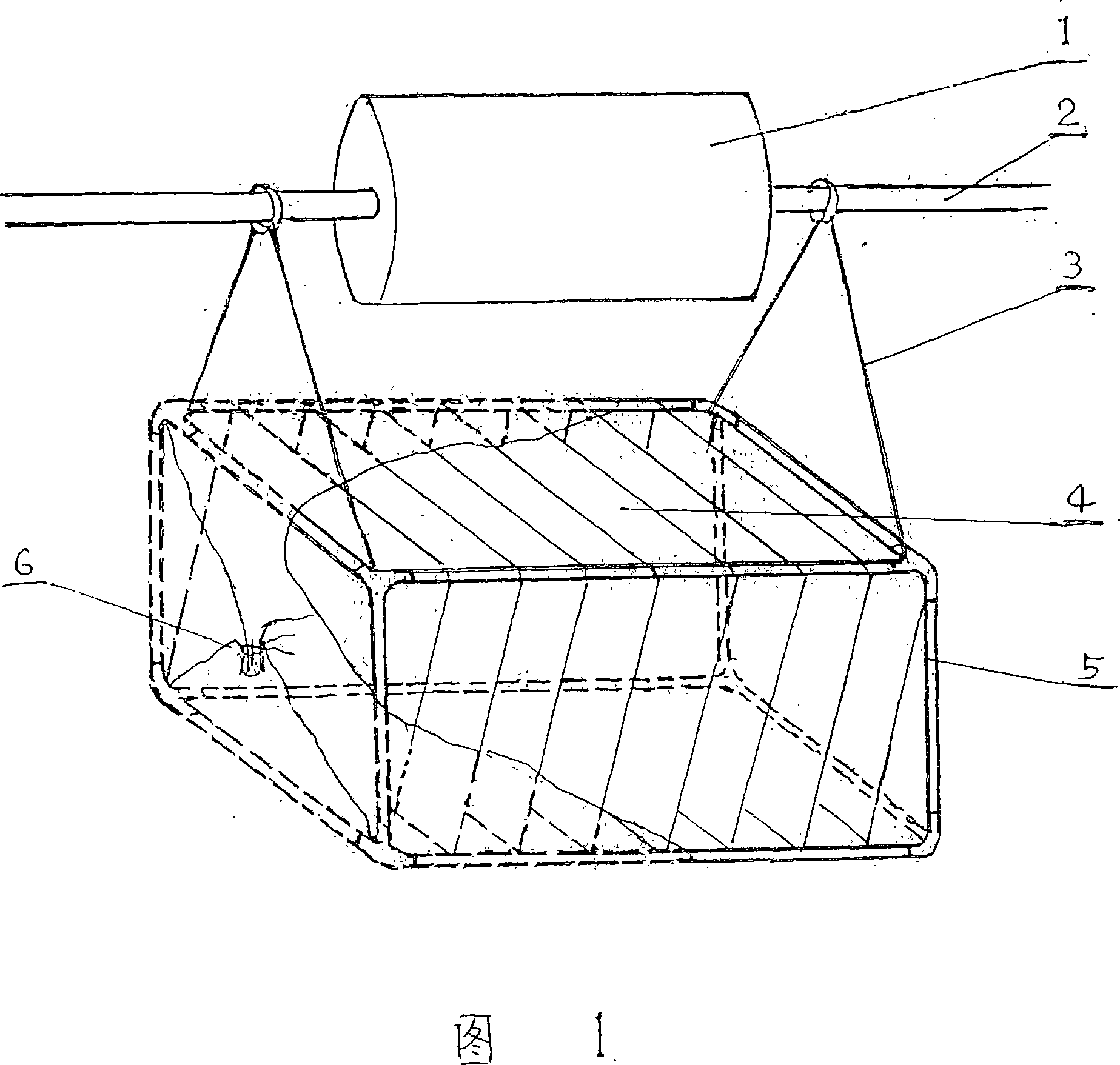Separated device of raising sea cucumber in cage
A separate, cage technology, applied in fish farming, climate change adaptation, fishing, etc., can solve the problems of low survival rate and harvest rate of sea cucumber, occupation of intertidal sea area, weak ability to resist natural disasters, etc. Achieve the effect of improving the comprehensive utilization value and economic benefits, improving the survival rate, and eliminating the invasion of harmful organisms
- Summary
- Abstract
- Description
- Claims
- Application Information
AI Technical Summary
Problems solved by technology
Method used
Image
Examples
Embodiment Construction
[0014] Describe concrete structure and using method of the present invention in detail below by example:
[0015] 1. Structural content:
[0016] The separated japonicus breeding net cage is rectangular, and its structure is made of frame 5, net sheet 4 and net bag 6. Frame 5 is made of Φ2cm PVC plastic pipe, which is 0.75m in height, 1m in length and 1m in width, and bonded by elbows, tees, glue, etc. Cut into equal mesh pieces with a size of ×1m, and hang them vertically and evenly in the frame 5 with a 65° slope. space. Mesh bag 6 is the polyethylene knotless net of mesh 0.8cm, is made into tubular shape by the size of long 2.5m, circumference length 3.5m, and is overcoated on the frame 5. After the ginseng seedlings are put into it, the net bag 6 two ends use nylon rope to seal firmly.
[0017] 2. How to use:
[0018] Use 360 plied nylon rope to make the floating rope 2, the two ends of the floating rope 2 are fixed on both sides of the pool dam by wooden stakes, an...
PUM
 Login to View More
Login to View More Abstract
Description
Claims
Application Information
 Login to View More
Login to View More - R&D
- Intellectual Property
- Life Sciences
- Materials
- Tech Scout
- Unparalleled Data Quality
- Higher Quality Content
- 60% Fewer Hallucinations
Browse by: Latest US Patents, China's latest patents, Technical Efficacy Thesaurus, Application Domain, Technology Topic, Popular Technical Reports.
© 2025 PatSnap. All rights reserved.Legal|Privacy policy|Modern Slavery Act Transparency Statement|Sitemap|About US| Contact US: help@patsnap.com

